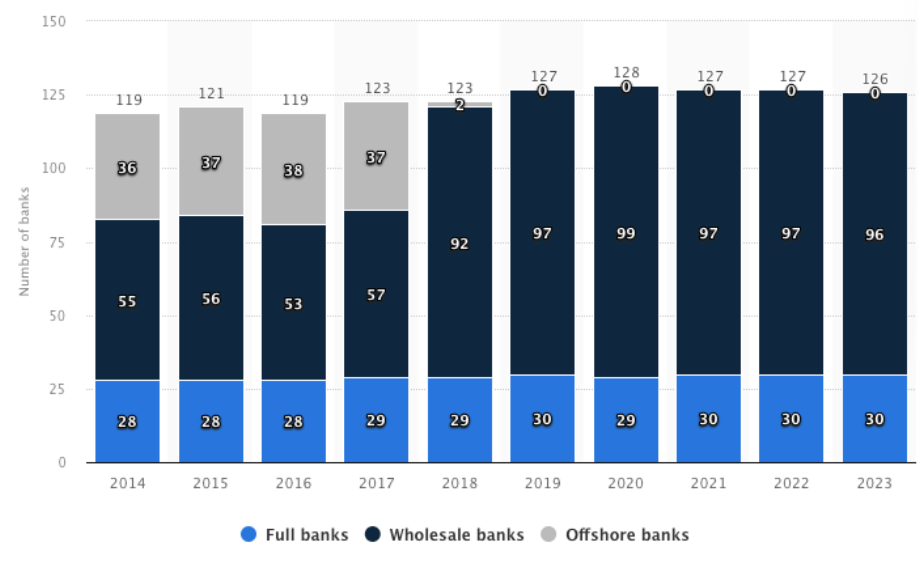
Living in Singapore: The Ultimate Guide
Expats and travelers prefer Singapore as it’s a popular destination. It may be due to its high standard of living, efficient public transportation, and diverse culture. Also, despite the high cost of living, many Americans find Singapore rewarding.
This guide supports both future and current expats. Which one is you doesn’t matter, let’s cover what you need to know about living in Singapore.
Accommodation in Singapore
Singapore’s expat communities typically reside in neighbourhoods like Tiong Bahru and Holland Village, known as Singapore’s Brooklyn. Single couples also have selection of popular locations like Tanjong Pagar, Sentosa, and Woodlands. Singapore’s housing market is divided into public and private sectors. So most locals and Asian expats opt for public housing managed by the Housing Development Board (HDB).
You may find yourself renting private apartments, condominiums, or bungalows in the suburbs, which are cheaper than city center rents. Both furnished and unfurnished accommodations are available. Also, it’s essential to consider whether to ship all belongings from home.
Local Culture in Singapore
Singapore’s multiculturalism, with Chinese, Malay, and Indian ethnic groups, offers a diverse range of traditions, holidays, and customs, which is exciting. English is the primary language of business, but Malay and Mandarin are also widely spoken.
Singaporeans wear flip-flops and shorts as their unofficial uniform. You may guess that light cotton shirts, shorts, and summer dresses are suitable for the average temperature of 27°C.
Education in Singapore
Singapore’s top-notch educational system is renowned for its effectiveness. There are many international schools in Singapore that accept English-speaking foreigners, many of which adhere to the International Baccalaureate (IB) curriculum. Additionally, there are foreign schools that are tightly related to specific national educational programs.
Since English is the major language of instruction in Singapore, foreign students can attend state schools. It’s important to reserve a spot in advance. The use of Singapore’s public schools may have certain drawbacks, such as curricular discrepancies and language hurdles.
Public Educational Institutions
In case you intend to reside in Singapore for an extended period, public schools seem to be a more cost-effective choice than international schools. Nevertheless, the peculiarities of the regional curriculum and instructional methods could be troublesome. It’s rumored that underachievers at elite schools be expelled, and physical punishment is acceptable.
International Schools
Numerous top-notch foreign schools in Singapore provide the foreign Baccalaureate or teach students according to American, British, or Australian curricula. Try to work out an education allowance into your employment contract as there are substantial fees.
4 Best Global Universities in Singapore
4. Singapore Management University
#725 in Best Global Universities
Global Score: 45.1
3. Singapore University of Technology & Design
#432 in Best Global Universities
Global Score: 53.6
2. Nanyang Technological University
#30 in Best Global Universities
Global Score: 79.0
1. National University of Singapore
#26 in Best Global Universities
Global Score: 80.4
Source: U.S. News
Healthcare in Singapore
Singapore has universal healthcare, which is paid for by government subsidies and a public statutory insurance system. However, temporary residents, like foreign nationals, are not covered by this system. This implies that in order to receive Singapore’s first-rate treatment, you probably require international health insurance.
In addition to ten government hospitals, over a dozen private hospitals and other specialty clinics are located in Singapore. You can register in person with a general practitioner (GP) at a public or private clinic.
Public and private hospitals are consistently rated as among of the best in the world, offering skilled and effective care. When seeking primary care, foreigners frequently select private hospitals over public ones. Because of this, the majority of foreigners choose private healthcare because it is thought to be of greater quality and is just marginally more expensive.
Private healthcare facilities don’t require medical insurance, and the cost of general treatment is shockingly low. Having said that, you might choose to obtain insurance in the event of an emergency or a severe disease.
Furthermore, sunburn and dehydration are Singapore’s two main health problems. It’s difficult to prepare for the wall of heat and humidity that greets new arrivals. Remain hydrated, and remember to use sunscreen.
Opening a Bank Account in Singapore
As a foreigner, you are able to open a bank account in Singapore if residing in are among your plans. Or, you may think about studying, working, or just visiting Singapore frequently. Having a bank account in Singapore will simplify making payments.
To open a bank account, there might be a requirement to visit a branch physically. So you’ll complete the necessary paperwork in person.
If you’re planning to create a business account, remember that it may take around three to five days.
Number of Foreign Banks in Singapore from 2014 to 2023, by Type

Source: Statista
Cost of Living in Singapore
|
Category |
Detail |
Cost |
|
Accommodation |
1-bedroom in the city center |
$3,001.73 |
|
1-bedroom outside the city center |
$2,158.60 |
|
|
Education |
Preschool monthly fees |
$1,249.55 |
|
International primary school yearly fees |
$27,433.86 |
|
|
Food |
Inexpensive restaurant meal |
$9.67 |
|
Mid-range 3-course meal for 2 |
$74.41 |
|
|
Transportation |
One-way local transport ticket |
$1.49 |
|
Monthly transport pass |
$95.25 |
Source: Numbeo
If you want to learn more, you can check “Cost of Living in Singapore” for details about the living expenses.
Moving and Living in Singapore: Expat Life
In 2020, there was a spike, especially in enterprises and foreigners who moved from Hong Kong to Singapore. Some of the reasons were political unpredictability. As a result of this, the demand for Singapore’s premium real estate increased.
Living in Singapore has both opportunities and disadvantages for expats. Strict regulations and a high cost of living can be daunting. On the other side, the superb public transit system, diversified culture, and high standard of living create an unforgettable experience. It allows Americans to travel to Asia and experience life there while maintaining many of their favorite conveniences.
The pros and downsides of shifting to Singapore vary depending on individual circumstances. No matter what, you can find yourself in an expat community in Singapore easily as you’ll meet people from your home country as well as other foreigners.
Conclusion
Are you an American or a citizen from another country? When you become an expat in Singapore, you will most likely have access to a variety of options. There may also be some obstacles that follow. Your money may not satisfy your needs because the country’s living expenses are higher than those in the United States.
The decision to relocate to Singapore is ultimately based on personal ambitions and lifestyle choices. This guide hopefully helps you determine whether the Lion City is the ideal haven for expats.
Frequently Asked Questions
Is Singapore a popular place for expats?
It’s a popular destination for expats because of its convenient location, warm climate, and English being widely spoken.
Is living in Singapore expensive?
Living in Singapore is expensive, with costs comparable to New York. The high cost of living is attributed to housing, food, and transportation.
What language do people speak in Singapore?
The official languages in Singapore are Malay, Mandarin, Tamil, and English. English is the lingua franca, making it easy for expats to communicate.
Where to learn Malay in Singapore?
You can learn Malay at language schools like inlingua, Crystal Learning Language School, or Nanyang Technological University.
Do you need a car in Singapore?
While owning a car in Singapore is possible, it’s not necessary due to the efficient public transportation system and the high costs associated with car ownership.
What are top expat tips for living in Singapore?
Top expat tips for living in Singapore include understanding the high cost of living, embracing local food culture, learning Singlish, and enjoying the multicultural environment.
What are the key points I should learn about living in Singapore as an expat?
- Singapore’s social security system is anchored by the Central Provident Fund (CPF), a mandatory savings scheme that helps citizens and permanent residents set aside funds for retirement.
- Southeast Asia is a diverse region. It’s situated south of China and northwest of Australia. It comprises of 11 different countries with their own unique languages and cultures.
- Singapore life offers a blend of luxury and career opportunities, with a high cost of living balanced by a low taxation system and a multicultural environment.
- Cultural traditions are practices and beliefs that identify a person’s heritage, varying greatly across different societies and regions, and can include festivals, rituals, and ceremonies.
- The expat community is a global network of individuals living outside their home countries, often connecting through platforms.
What are the benefits of living in Singapore?
- Public transport is extremely efficient, making it simple to travel the city-state. Whether you're going to work or visiting the city, you can use the MRT (Mass Rapid Transit) system, buses, and taxis.
- One of the city's highlights is East Coast Park, a 15-kilometer-long beach park. It's ideal for outdoor activities such as cycling, inline skating, barbecues, and water sports.
- For families with children, there are various international schools with diverse curricula. These schools foster a multicultural environment that can benefit children's development.
- Making local friends in Singapore can greatly enhance your experience. The locals are generally friendly.
- Although there is a high population density, Singapore is renowned for its cleanliness and well-planned infrastructure.









